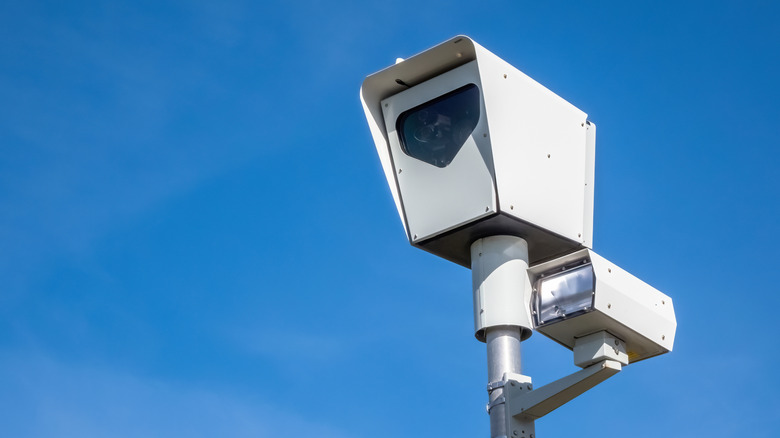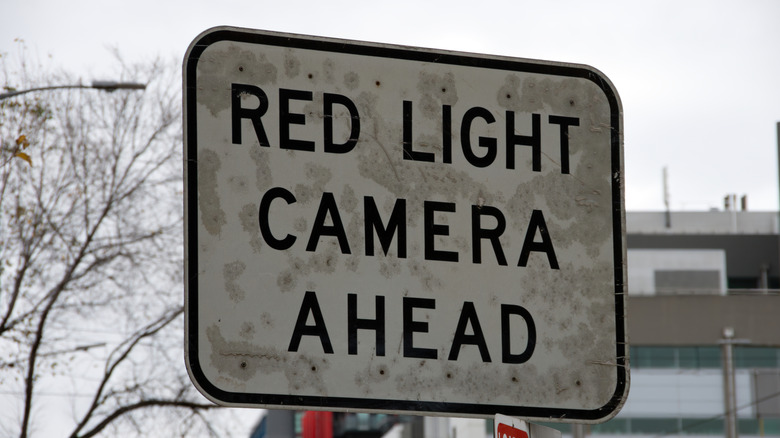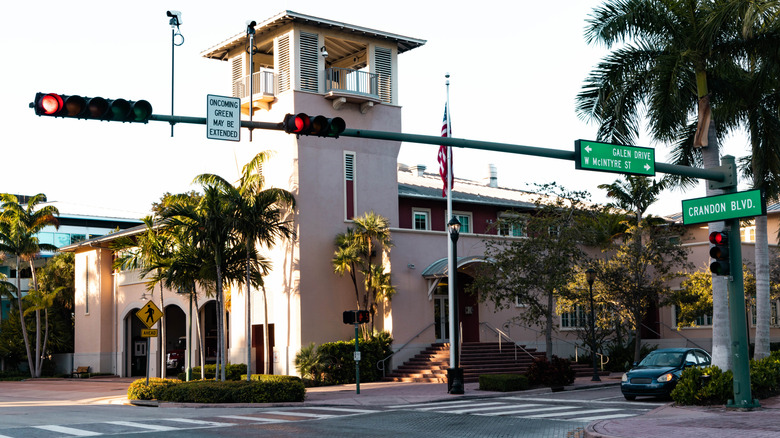Can You Still Get A Red Light Camera Ticket In Florida?
Red light cameras are at the center of a very long, very fierce debate that touches on safety, revenue, fairness, and even constitutional rights. This is especially true in Florida, where the devices have switched from legal to illegal and back again over the years. (And that's not even one of the weirdest auto laws in the state.)
Most recently authorized under the 2010 Mark Wandall Traffic Safety Act and upheld by the Florida Supreme Court on more than one occasion, Florida's red light cameras were supposed to discourage people from running red lights as part of a greater effort to save lives. And yet legal battles, public backlash, and conflicting crash data have only led to louder calls for their removal.
You might not get one for safely turning right on red, but flat-out running a red? That's a different story. As of this writing, the state of Florida still allows its cities and counties to operate red light camera systems. And yes, that means you can still get a ticket. (With a $158 fine to boot.) Of course, whether or not you actually encounter a red light camera will depend on how and where you drive. Many municipalities have chosen to scale back or completely shut down their programs altogether due to backlash, while others are holding strong.
The legal justification for red light camera tickets in Florida
Florida's red light camera program has had its legality tested again and again in court. In July 2018, the Florida Supreme Court ruled that cities could contract with outside vendors to review camera footage and recommend citations so long as a sworn officer ultimately made the decision.
More recently, the Court declined to hear another challenge against a red light camera program, effectively upholding an appeals court ruling that supported the program's guidelines. Florida Attorney General Ashley Moody backed the decision as well, noting no conflict with established precedent. While each of these rulings demonstrates the legality of the program, not all traffic lights have cameras. What this means for Florida drivers is that some areas will come with strict enforcement, while others might be completely free of red light cameras. To state the obvious, if you don't want a ticket, it's in your best interest not to run red lights anywhere.
The problem with red light cameras
A large part of the public's distrust of red light cameras is rooted in data that suggests their benefits are mixed at best. A 2022 state study found that overall crashes increased at intersections with cameras installed, largely due to rear-end collisions from drivers braking suddenly to avoid a ticket. Some Florida cities, like Doral and Sweetwater, ended their programs after recognizing this rise in accidents. Larger jurisdictions, such as Miami, Hialeah, and unincorporated Miami-Dade, have also done away with them.
Beyond the accident data, the programs are also notorious for being used as revenue-generating tools rather than safety measures. Some small towns have come to rely quite heavily on the income from red light camera tickets. For example, West Miami depends on red light cameras to provide more than 15% of its annual revenue. Opa-Locka, Medley, and other cities have seen similar budget boosts.
Although statewide bans have failed to gain traction, lawmakers have recently taken steps to make the financial process more transparent. In May 2024, Governor Ron DeSantis signed a bill requiring cities and counties with red light camera programs to publish annual reports detailing the number of violations, the amount of fine revenue collected, and the use of those funds. Contracts with camera vendors must now be approved in public meetings, as well. Cities that fail to meet these requirements risk suspension of their red light camera operations.


